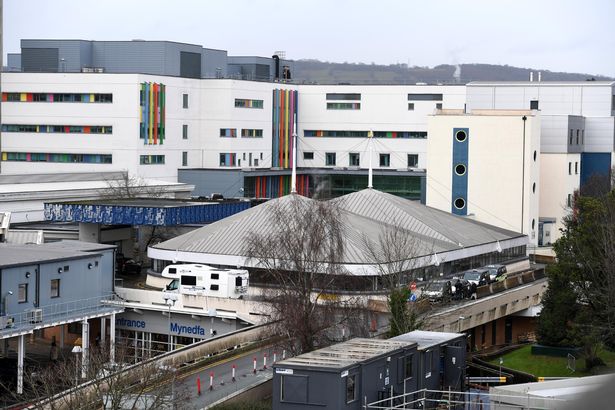A coroner has said an inquest will examine whether earlier treatment could have been provided
14:01, 05 Nov 2025Updated 14:08, 05 Nov 2025
 Aria Rose George(Image: Funeral notices)
Aria Rose George(Image: Funeral notices)
A coroner has opened an inquest into the death of a five-year-old girl, which will examine whether earlier treatment could have been provided for a medical condition which her family knew nothing about until she became unwell.
An inquest opening at Swansea‘s Guildhall into the death of Aria Rose George heard how the youngster, who lived with her parents in Cimla, Neath, tragically died at the University Hospital of Wales in Cardiff on September 27, 2024.
She was not known to suffer from any medical conditions, but on the week commencing September 23, 2024, she became unwell, and was taken to her GP practice and then to Neath Port Talbot Hospital for treatment. She received medication before returning home. For the biggest stories in Wales first, sign up to our daily newsletter here
Sadly, her condition did not improve, the inquest heard, and so her parents took her back to the hospital, where a decision was made for her to be transferred to the University Hospital of Wales in Cardiff for a CT scan.
 The University Hospital of Wales in Cardiff, where Aria Rose George tragically died(Image: Huw Evans Agency)
The University Hospital of Wales in Cardiff, where Aria Rose George tragically died(Image: Huw Evans Agency)
It was discovered she was suffering with a global intracerebral bleed with hydrocephalus. In addition, a CT Thorax showed pulmonary emboli.
Discussions with haematology showed that preliminary results and the clinical picture were in-keeping with acute myeloid leukaemia.
Following consultation with senior medical teams involving the haematologists, neurosurgeons and critical care team, in her best interests, Aria was placed in “supportive comfort care.”
She was kept comfortable overnight, and the following day was palliated with her parents at her bedside.
Aria sadly continued to deteriorate and was pronounced dead at 1.38pm on September 27, 2024 by consultant Dr Richard Skone.
Her proposed cause of death has been given as intracerebral haemorrhage (non traumatic) and acute myeloid leukaemia.
Senior coroner Aled Gruffydd said an investigation needed to be carried out to examine whether earlier treatment could have been provided, and stated it was in the public interest to ascertain the facts surrounding her death.
He adjourned the inquest until April 29, 2026, and offered his “deepest condolences” to Aria’s family.
Why we cover inquests – and why it’s so important that we do
As painful as these proceedings are for those who have lost a loved one the lessons that can be learned from inquests can go a long way to saving others’ lives.
The press has a legal right to attend inquests and has a responsibility to report on them as part of their duty to uphold the principle of open justice.
It’s a journalist’s duty to make sure the public understands the reasons why someone has died and to make sure their deaths are not kept secret. An inquest report can also clear up any rumours or suspicion surrounding a person’s death.
But, most importantly of all, an inquest report can draw attention to circumstances which may stop further deaths from happening.
Should journalists shy away from attending inquests then an entire arm of the judicial system is not held to account.
Inquests can often prompt a wider discussion on serious issues, the most recent of these being mental health and suicide.
Editors actively ask and encourage reporters to speak to the family and friends of a person who is the subject of an inquest. Their contributions help us create a clearer picture of the person who died and also provides the opportunity to pay tribute to their loved one.
Often families do not wish to speak to the press and of course that decision has to be respected. However, as has been seen by many powerful media campaigns, the input of a person’s family and friends can make all the difference in helping to save others.
Without the attendance of the press at inquests questions will remain unanswered and lives will be lost.
